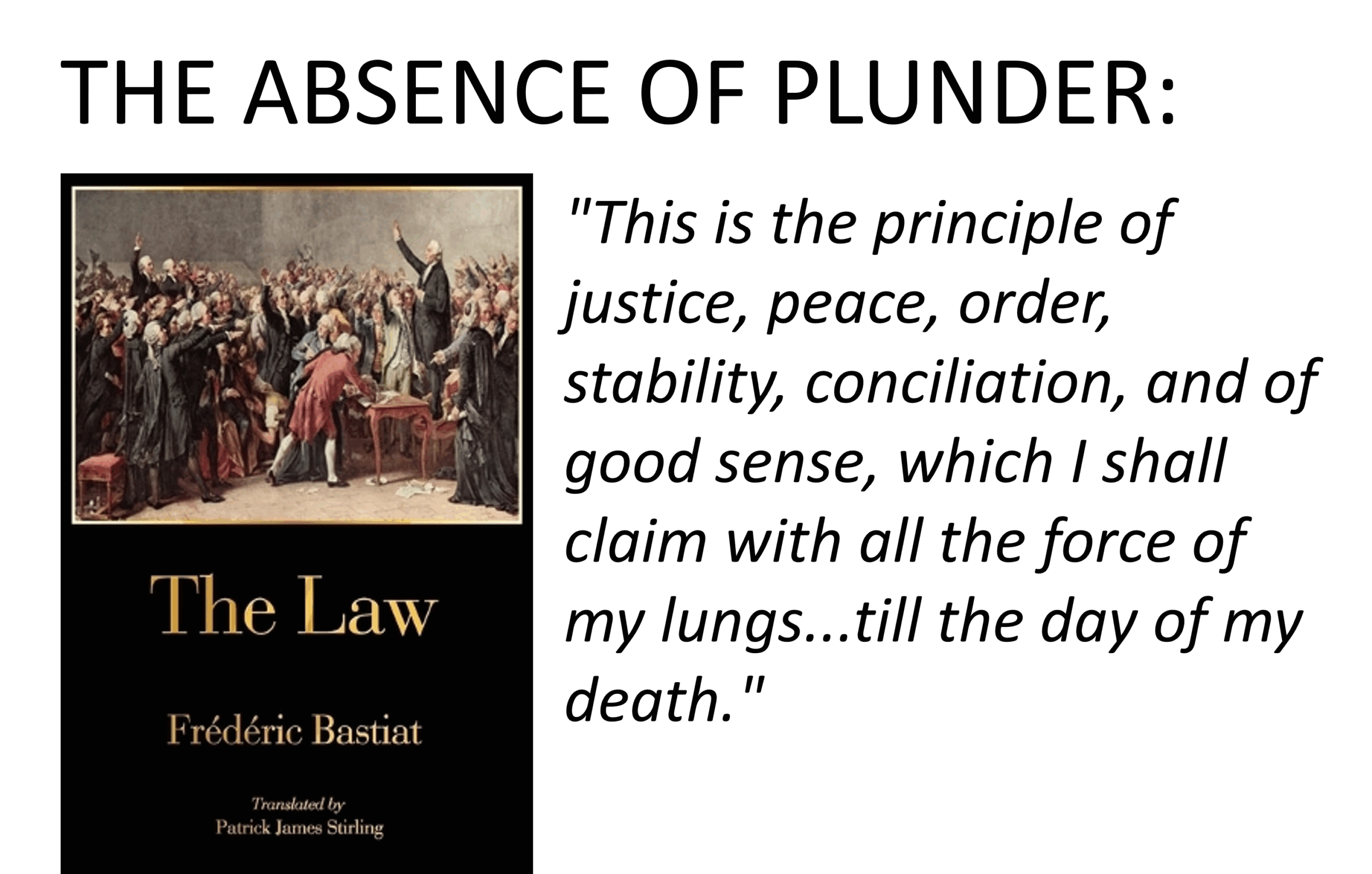Predators seek positions where they have easy access to prey!
It is the worlds easiest job for the authority criminals/enablers to claim they have legal power, when they obtained their authority by **fraud, using influence & other dishonourable methods to then corrupt every layer in the government hierarchy & beyond. They planned [over decades], for massive exploitation & abuse – to control every aspect of the lives of decent citizens as their slaves or be eradicated. They have already avoided accountability for the multiple crimes they have committed, including ** CRIMES AGAINST HUMANITY: CORRUPTION/ NEGLECT/ SOCIAL MURDER/ SEXUAL/ PSYCHOLOGICAL / PHYSICAL / FINANCIAL/ DATA/ SOCIAL ABUSE.
Update 15/01/26 Digital ID Scrapped? – Starmer Lied. The Contracts Prove It. Video by Fine Print.👀👀 “UK Digital ID “Scrapped”? Starmer’s U-Turn Is a Lie. Here’s Where £210 Million of Your Money Went. The government announced they’re dropping mandatory digital ID for workers. The media called it a U-turn. A victory. Case closed. Except they didn’t cancel anything. They’re still building Gov.uk One Login. Still rolling out Gov.uk Wallet. Still handing hundreds of millions in contracts to Deloitte, Accenture, and private verification companies you’ve never heard of. In this video, I follow the money behind Britain’s digital ID programme — the £100 million consulting bonanza, the revolving door between Whitehall and contractors, the 500,000 security vulnerabilities nobody fixed, and the international playbook that shows exactly where “optional” digital ID leads. They told you it was cancelled. Here’s the fine print.“
They’re just liars, thieves and crooks – who repeatedly give contracts to equally, unscrupulous companies, in order to line each others pockets.
08/01/26 https://bigbrotherwatch.org.uk/campaigns/stop-facial-recognition/#respond “Now is your chance to make your voice heard and tell the Home Office about the dangers facial recognition poses to our civil liberties. “ Please sign.
06/01/26 Narcissist Predator; Beware The Most Dangerous Creature Walking the Earth Written by Narcissistic Abuse Expert and Coach Randi Fine “The Dark Underbelly: Manipulation and Deception The Mask Slips: Unraveling the Narcissistic Persona “Despite their adeptness at concealing their true selves, cracks in the narcissistic façade inevitably surface, offering glimpses into the abyss that lies beneath. When challenged or thwarted, narcissists reveal their true nature through outbursts of aggression, vindictiveness, and a pathological need for validation.”
Just look at how the pathological leaders around the world are operating under false pretences and without a conscience.
We’ve played it by their rules so far, but now the gloves are off.
The laughing hyenas need to be put in their place – behind bars (with assets removed) where they can never abuse any one ever again. Please copy & share to protect the innocent.

They’re just liars, thieves and crooks, they abuse their positions and ‘cook the books’…
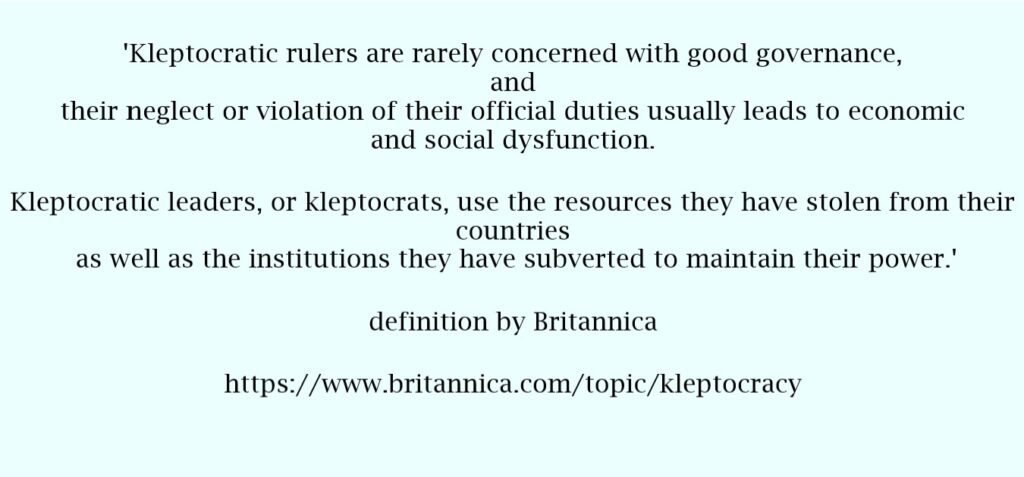
Page updated 27/12/25 https://www.gov.uk/government/publications/the-7-principles-of-public-life/the-7-principles-of-public-life–2 As the despots have successfully avoided accountability by the pseudo – regulators/police etc for committing fraud/corruption by falsely claiming they are trustworthy individuals – they knew they could corrupt everything else – so even more unscrupulous persons applied and were given authority positions. It is time WE [decent people] took over.
“When dishonesty begets dishonesty: Unethical behaviour is rewarded/promoted, but decency is treated with contempt leading to the wider public being placed at a greater risk of harm.”
1. The Seven Principles of Public Life
The Seven Principles of Public Life (also known as the Nolan Principles) apply to anyone who works as a public office-holder. This includes all those who are elected or appointed to public office, nationally and locally, and all people appointed to work in the Civil Service, local government, the police, courts and probation services, non-departmental public bodies (NDPBs), and in the health, education, social and care services. All public office-holders are both servants of the public and stewards of public resources. The principles also apply to all those in other sectors delivering public services. The custodians of the Principles of Public Life are the Ethics and Integrity Commission – “The Commission is not a regulator and has no remit to investigate individual cases.” just another toothless quango for ‘friends of govt’ to secure jobs; and so they can pretend that they are useful and ethical. “The Ethics and Integrity Commission promotes the highest standards in public life, [🤣🤣🤣] reports to the Prime Minister [🤣🤣🤣 the most unethical, kleptocrats of all! ] on matters concerning ethical standards,[🤣🤣🤣] and advises public authorities on the development of clear codes of conduct with effective oversight arrangements.” 🤣🤣🤣
Civil Service World: “The Commission was announced by the then Chancellor of the Duchy of Lancaster in Parliament on 21 July 2025.” – “Darren Jones has been named as chancellor of the Duchy of Lancaster, replacing Pat McFadden as part of a major ministerial reshuffle by the prime minister Keir Starmer…” Just ‘marking their own homework’... again!
1.1 Selflessness
Holders of public office should act solely in terms of the public interest.
1.2 Integrity
Holders of public office must avoid placing themselves under any obligation to people or organisations that might try inappropriately to influence them in their work. They should not act or take decisions in order to gain financial or other material benefits for themselves, their family, or their friends. They must declare and resolve any interests and relationships.
1.3 Objectivity
Holders of public office must act and take decisions impartially, fairly and on merit, using the best evidence and without discrimination or bias.
1.4 Accountability
Holders of public office are accountable to the public for their decisions and actions and must submit themselves to the scrutiny necessary to ensure this.
1.5 Openness
Holders of public office should act and take decisions in an open and transparent manner. Information should not be withheld from the public unless there are clear and lawful reasons for so doing.
1.6 Honesty
Holders of public office should be truthful.
1.7 Leadership
Holders of public office should exhibit these principles in their own behaviour and treat others with respect. They should actively promote and robustly support the principles and challenge poor behaviour wherever it occurs.
17/12/25 Spot the difference; 🔽 [the first part of the snip] shows one example of how they ‘write off’ govt orchestrated fraud and errors and other misappropriation of public money, e.g; embezzlement under the ruse of foreign aid/climate change etc – but are stitching up the public, accusing them all of fraud – as the reason they need to spy and control everyone’s bank accounts. The reality is they want control all our spending, steal our money, data and they attempt to use different legislation to achieve this; including the F.E.A.R. Act. Public Authorities (Fraud, Error and Recovery) Act 2025 They give out money claiming the recipients are entitled to it, and years later when they decide you owe them thousands and know you cannot afford to pay – they demand it back. They oust you out of your house (rented or owned), and by ignoring the original version of Protection from Eviction Act 1977 with the help of the bailiffs & the police; who are not supposed to be involved in civil matters– but tell the victims they are there to protect the bailiffs. It is all acts of treachery.
Bank Statements and the NEW LAW What the DWP haven’t told you video by the The Justice Journals
MY BANK INTENDS TO TAKE CONTROL OF MY MONEY
Ch. 2 WHEN BANKS/GOVTS COLLUDE- and deliberately push people into poverty:

WHAT DO THESE INCIDENTS 🔽 HAVE IN COMMON? These are preventable acts of terrorism; forced upon the public by the UK decision makers who dishonestly, acquired authority positions – who on a daily basis, demonstrate an extremely callous disregard to the safety & security of ordinary UK citizens and visitors.
Britannica –“terrorism, the calculated use of violence to create a general climate of fear in a population and thereby to bring about a particular political objective. Terrorism has been practiced by political organizations with both rightist and leftist objectives, by nationalistic and religious groups, by revolutionaries, and even by state institutions such as armies, intelligence services, and police”

An 11-year-old girl “thought she was going to die” when she was stabbed repeatedly in the face by a “crazed” man in Leicester Square during a sightseeing tour of London, the Old Bailey has heard” ….He had been admitted to hospital three times in Romania between May 2022 and February 2023 for treatment to his mental health.”
“And a month before the attack he called Bedfordshire Police from a layby in a cry for help, telling police he is a victim of a “network of paedophiles and human trafficking”….Officers attended and spoke to Pintaru, recognising that he needed help. The court heard he was left with phone numbers to call, but there is no evidence that Pintaru went on to seek help.” NEGLIGENCE by the police especially for expecting a mentally ill man to help himself. How ignorant can they be?



THE PREDATORY BEHAVIOUR of the self-titled ‘elite’
(1)A person is guilty of fraud if he is in breach of any of the sections listed in subsection (2) (which provide for different ways of committing the offence).
(2)The sections are—
(a)section 2 (fraud by false representation),
(b)section 3 (fraud by failing to disclose information), and
(c)section 4 (fraud by abuse of position).
(3)A person who is guilty of fraud is liable—
(a)on summary conviction, to imprisonment for a term not exceeding [F1the general limit in a magistrates’ court] or to a fine not exceeding the statutory maximum (or to both);
(b)on conviction on indictment, to imprisonment for a term not exceeding 10 years or to a fine (or to both).
- The authorities collected data over decades from many sources, whilst fraudulently claiming they were acting in our interests. This was a lie and we [the public] were conned. Our data gives them a massive advantage over us and IS BEING USED AGAINST US and shared anywhere they like.
- Corruption has grown so much; our fake leaders and the rest of the authorities are actually operating as organised crime: SERIOUS AND ORGANISED CRIME STRATEGY 2023 TO 2028
No place to hide: serious and organised crime strategy 2023 to 2028 (accessible version – show them a mirror because they are the worst offenders – hiding in plain sight…they are the most productive serious and organised crime syndicate; with global connections – and why they are giving themselves more power to support their own and the other examples of criminality in the UK.
Chapter 1: Ministerial Foreword
““Crime destroys lives and devastates communities. Serious and organised crime brings harm on a scale that can threaten national security. It also creates and fosters a self-reinforcing environment of criminality. Corruption and illicit finance undermine democracies and pose a threat to global security. It challenges the legitimacy of the Crown. To further complicate matters, the lines between organised criminals and state actors are sometimes blurred.” Well they would know and need to stop projecting themselves on others❗ They have no legitimacy – they are Null and Void.
The greater the power, the more dangerous the abuse – Edmund Burke
Covert Human Intelligence Sources (Criminal Conduct) Act 2021 from Wikipedia (please support them, they are doing good work and the UK govt are trying to silence them)
- …and the need to safeguard the individual has been taken into account.[18] (so they CLAIM; whilst introducing a law which gives many agencies the right to RAPE, TORTURE AND MURDER anyone they like, and with no redress or accountability❗❗❗ and they directly & deliberately withheld this from the public). Our fake leaders & their entourage of sycophants are clearly psychopaths. ALL of them are unfit for public office. LOOK at the list of agencies given this power- it is outrageous. They are committing multiple crimes against humanity. We should not be paying taxes to keep criminals or dysfunctional persons in their jobs – on the grounds we are aiding and abetting crimes and warmongering.
- Setting out the bodies capable of using undercover agents and CCAs as being:[19]
If the lawmakers/ministers were doing nothing wrong, why do they try to block the link to the article below every time I try to put it on this (my) website❓

Migrant attack victim speaks out – GB news An example (there are so many) of corruption & a callous disregard to the welfare of the victim; this brave young lady endured a horrific attack and the police put the perpetrator back into the community A FEW DOORS AWAY FROM HER. Think about this -they deliberately put in harms way; this victim of a serious crime. I do not know how they have the audacity to pretend they care or collect their tax payer funded salaries; because like all the authorities, they are operating under false pretences; TRAITORS & PREDATORS and should be held to account for their many examples of misconduct in public office; to the full extent of the law by the public; bypassing the criminals who call themselves an authority. They have all invalidated their rights to hold positions of trust in public office.
04/12/25 Digital ID, a cashless society & digital banking, 20 minute cities, destroying community spirit/family life, legislation used as a weapon, artificially raised cost of living…the list goes on & on. These are just some of the methods orchestrated by those who are suffocating the life out of us; so they achieve totalitarian control. DO NOT COMPLY…if WE ALL put effort into resisting them (dependant on individual ability) – it could be very productive for us. We WILL ALL lose everything we value and need – if we do nothing.
See the Velvet Revolution: The Velvet Revolution (Czech: sametová revoluce) or Gentle Revolution (Slovak: nežná revolúcia) was a non-violent transition of power in what was then Czechoslovakia, occurring from 17 November to 28 November 1989. Popular demonstrations against the one-party government of the Communist Party of Czechoslovakia included students and older dissidents. The result was the end of 41 years of one-party rule in Czechoslovakia, and the subsequent dismantling of the command economy and conversion to a parliamentary republic.[3] Article from Wikipedia and also referenced on the website below.
WE DO NOT NEED UNSCRUPULOUS, ARROGANT, POLITICIANS RUINING OUR LIVES. We would be better off if we were directly running the UK ourselves. By making all our own decisions, and answerable to each other, using only ethical laws, we could improve security/safety and our standard of living. By removing all the self-serving parasites from the top down, we would massively increase the available public money to benefit the citizens/and the UK. All the children could be much better educated & supported and we could all have a happier, more secure and healthier future.
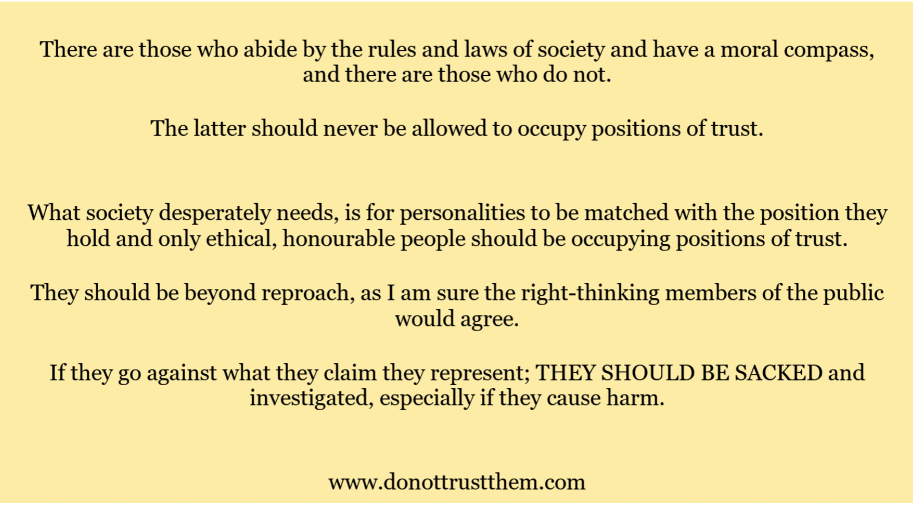
Why are People so Obedient? – Compliance and Conformity – Academy of Ideas – with video and full transcript.👀 Understand how & why you are being coerced into complying and you will realise it is imperative WE bring about change. Those playing at ‘follow their authoritarian leader’ are not courageous, they believe it is the easy solution for themselves (like those who hang on the coattails of bullies), whilst those who do not suck up to the evil, nasty bullies – are the courageous ones. 💪💪💪 Have confidence in yourself to do the right thing – for humanity.
“And the word “courage” should be reserved to characterize the man or woman who leaves the infantile sanctuary of the mass mind.” Sam Keen, Fire in the Belly
“In the privacy of our minds many of us disagree with the ideologies, political agendas, and government mandates of our day, yet in public we comply. We do what we are told, say what is politically correct, and justify our hypocrisy by telling ourselves that we are powerless to change society, and so we might as well blend in with the crowd. In this video, we explain why publicly conforming to what we privately disagree with makes us complicit in tyranny, and why each of us has far more power to influence society than we have been led to believe.”
“For one of the primary ways that governments, corporations, and global institutions influence public opinion and shape mass behavior is by manufacturing illusions of consensus. They harness the power of the mainstream media and social media for the express purpose of making it seem as if the majority supports certain agendas, ideologies, and mandates. Slanted narratives, biased reports, rhetoric that appeals to emotion, misleading “fact checks”, outright lies, dubious opinion polls, and social bots are some of the weapons used in this subtle form of psychological warfare. ”
03/12/25 The Latest GIANT POWER GRAB by the frauds who pretend to be a legitimate govt – * Public Officers to exploit & abuse us: via The Public Authorities (Fraud, Error and Recovery) Act 2025 It is also another huge data abuse with our personal & sensitive details passed around – by unscrupulous persons – acting for authorities and other untrustworthy organisation/companies – back-stabbing traitors.👎👎👎
▶▶▶Bank Statements and the NEW LAW What the DWP haven’t told you video 🔽 by The Justice Journals There are so many good people now exposing authorities & co and providing useful information to protect the innocent. ❤💪👍
“Bank Statements and the NEW LAW What the DWP haven’t told you The DWP are suddenly asking thousands of people for bank statements — and it’s not random. The Public Authorities (Fraud, Error And Recovery) Act 2025 has now officially become law, and hidden inside it is a legal requirement for the Government to examine at least 3 months of your bank statements before they can take enforcement action, issue deductions, or freeze money in an account. If you want the protection tools, scripts and guidance for the new Act, and a lot more everything is inside my DWP Protection Toolkit, amongst resources found at: www.thejusticejournals.com
This law affects: — Universal Credit — PIP — ESA — Access to Work — Carer’s Allowance — Disabled workers — Self-employed claimants — Anyone with an overpayment — Anyone worried about DWP checks”’ – they will capture more groups further down the line.
This effects everyone – except the usual suspects; the members of the State Organised Crime Network & Co – who are projecting their own actions of fraud/unethical/criminal behaviour on to us; whilst they heavily engage in ***”wilful neglect/breach of duty or wilful misconduct and the power, authority, responsibilities and/or duties vested in the suspect by virtue of their office.”
“Projection is a psychological defense mechanism that involves attributing one’s undesirable traits, feelings, or impulses to other people.” by Simply Psychology
Your defence is this, the government & co have been operating under false pretences after acquiring their positions by being disingenuous to the public; & therefore THEY committed fraud. Having got away with criminal activity for decades, (and profited greatly by it), they are now 100% corrupted, and have broken more laws and abused more members of the public, than anyone who has ever been in prison. They do not have legitimacy, they are unethical criminals – operating above the law.

I have been standing up for the public most of my life for free, and need you to help too – for everyone’s sake. The psycho-criminals refuse to do the jobs they are paid to do and are only interested in exploiting us. Call them out and do not back down. Remember: Community spirit is the enemy of tyrants. Never allow the police in your home if you have not done anything wrong. They will steal whatever they like and use it against you and are prepared to use force. They cannot be trusted. If you are already being stitched up, refuse to recognise judicial process as it so deeply corrupted and prove it with many examples. Make sure your hearing is in the public domain to protect your absolute right to a fair trial (from The Universal Declaration of Human Rights).
Only shady people insist on working in the shadows and refuse to be transparent themselves. That is why they want juryless trials so they can continue to further abuse innocent people and cover for their own criminality. It is also the reason they are trying to forcibly remove our Human Rights.
Article 9 No one shall be subjected to arbitrary arrest, detention or exile.
Article 10 Everyone is entitled in full equality to a fair and public hearing by an independent and impartial tribunal, in the determination of his rights and obligations and of any criminal charge against him.
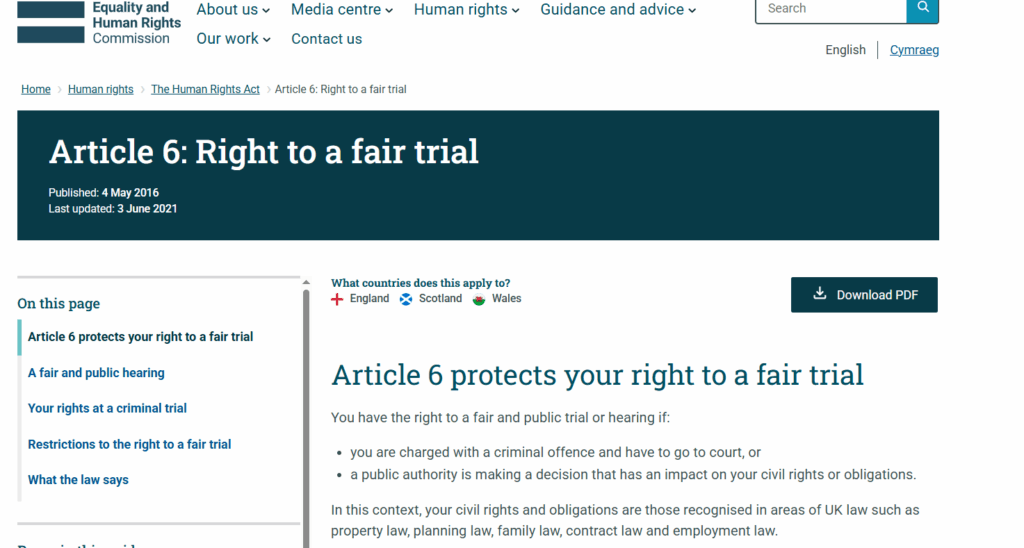
The authorities (including the DWP) have broken Human Rights Legislation many times and even when caught out, they have refused to comply. Their unwillingness to abide by and be held accountable in law, proves they are operating illegally and have rendered themselves Null and Void.
LAW BREAKING – CALEDONIA HOUSING ASSOCIATION – is my personal experience when I was denied legal protection due to corruption; protecting illegal activity and sanctioned by a corrupt sheriff, & regulators leading all the way to Nicola Sturgeons office. The police later on said they do not get involved in civil matters, but they do these days, because the authorities & their enablers are making up/altering rules & laws to suit themselves. Example; when they assist bailiffs to have tenants/home owners evicted because they cannot pay bills – which have been artificially raised; by the racketeering/profiteering companies & from unreasonably high taxes, fines/penalties imposed on everyone – to deliberately push good people into poverty. ‘They are all in it together!’


▶▶MISCONDUCT IN PUBLIC OFFICE ◀◀ https://www.cps.gov.uk/legal-guidance/misconduct-public-office
***“Misconduct in public office (“MiPO”) is a common law offence that can be tried only on indictment. It carries a maximum sentence of life imprisonment. The offence concerns serious wilful abuse or neglect of the power or responsibilities of the public office held. There must be a direct link between the misconduct and an abuse of those powers or responsibilities. The Court of Appeal has made it clear that the offence should be strictly confined, and it can raise complex and sometimes sensitive issues.”
Evidential Considerations
The elements of the offence were summarised in Attorney General’s Reference No 3 of 2003 [2004] EWCA Crim 868. The offence is committed when:
- a public officer acting as such
- wilfully neglects to perform their duty and/or wilfully misconducts themselves
- to such a degree as to amount to an abuse of the public’s trust in the office holder
- without reasonable excuse or justification
* The following have been held to be public officers:
- holders of judicial and quasi-judicial office (judges, magistrates, registrars, coroners)
- police constables (including while suspended from duty – see Knox [2011] EWHC 1629 (Admin)
- police community support officers (Amar Iqbal [2008] EWCA Crim 2066) and other police civilian employees (L [2011] EWCA Crim 1259 ; Gallagher [2010] EWCA Crim 3201)
- immigration officers (John-Ayo [2008] EWCA Crim 1651)
- elected officials (MPs, councillors, ministers, mayors)
- civil servants (including local authority officers and DVLA employees)
- prison staff (including prison nurses and those employed by private companies operating prisons)
- army officers
- Bishops of the Church of England (Ball [2015] Unreported)
- volunteer members of the Independent Monitoring Board (Belton [2010] EWCA Crim 2857)
Acting as such
“Acting as such” needs to be distinguished from circumstances in which the suspect was merely “acting whilst” a public officer. There must be a close nexus between the wilful neglect/breach of duty or wilful misconduct and the power, authority, responsibilities and/or duties vested in the suspect by virtue of their office.
Updated 26/11/25 Example **“SOCIAL MURDER: “When one individual inflicts bodily injury upon another such that death results, we call the deed manslaughter; when the assailant knew in advance that the injury would be fatal, we call his deed murder. But when society places hundreds of proletarians in such a position that they inevitably meet a too early and an unnatural death, […] knows that these thousands of victims must perish, and yet permits these conditions to remain, its deed is murder just as surely as the deed of the single individual; disguised, malicious murder, murder against which none can defend himself, which does not seem what it is, because no man sees the murderer, because the death of the victim seems a natural one, since the offence is more one of omission than of commission. But murder it remains.”– by Friedrich Engels in 1845... derived from Wikipedia who the govt intend to suppress; because the Wikimedia Foundation have a wealth of information (which is in the public interest), but the control freaks who illegally gained power [& who abuse their positions and resources], do not want the public to see.

Updated 27/12/25 The Covid pandemic ( a premeditated attack against the public) was fraudulently pushed upon us – by those who abused their positions of trust for a giant power/wealth grab. They knowingly caused more harm than good – but have refused to be held accountable, whilst enabling the already wealthy, massively increase their incomes further – by exploiting the situation. This was premeditated and they have attempted to repeat many times since assisted by their enablers; including the MSM; what resulted in crimes against humanity & more abuses.
20/11/25 When Oversight Fails: How the Teignbridge Planning Scandal Exposed a National Protection Racket article by Legal Lens
“A crisis that began in the planning department of a Devon local authority has now reached the corridors of Britain’s most powerful oversight bodies. What started as a routine complaint has become a case study in regulatory capture, conflict of interest, and institutional dishonesty — implicating national auditors, regulators, and professional accountancy bodies entrusted with protecting the public interest.
At the centre lies a simple but devastating question:
How did a local planning dispute become a national example of systemic collusion and regulatory paralysis? ”
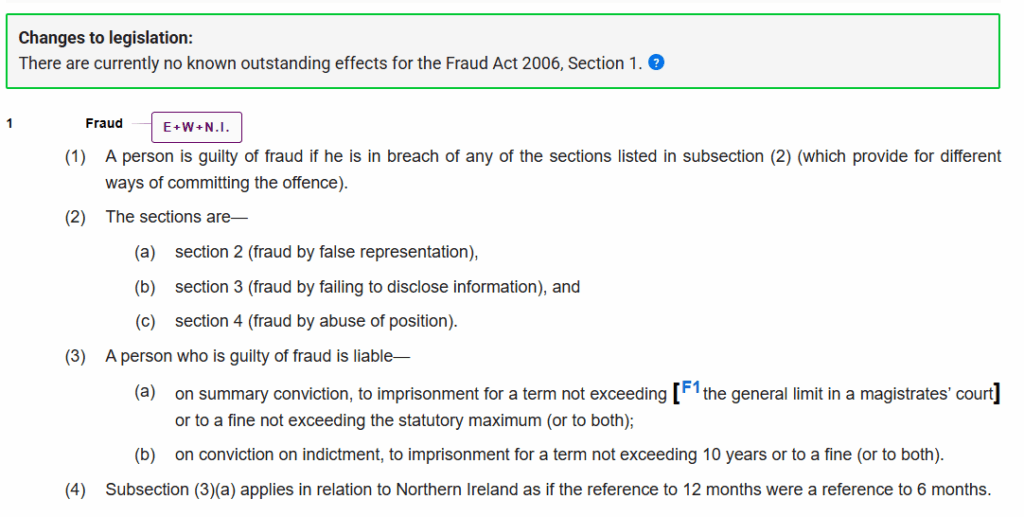
WHEN IGNORING OR COVERING A CRIME – BECOMES A CRIME
Rachel [Thieves] Reeves, the unscrupulous chancellor was given this prominent position in govt finances after proving herself to the deeply corrupted UK govt (‘as one of them’) – because she is willing to steal and gained experience when she worked in a bank – who let her off the hook. She also later falsified her C.V. for gain – as negative traits resulting in thieving and committing fraud; are obviously valued by the govt & the bank (Bank Of Scotland) who employed her.


HMRC/ & the pseudo-regulators etc obviously sanctioned her appointment too. She is now (‘in their eyes’, a qualified person] willing to commit fraud & steal from the public – raising more taxes – from those they know cannot afford them – to further advance the state predators corruption and malicious intent to harm. What does this tell you about their ultimate agenda? You/we will always be subservient to them to suffer & prematurely die – as long as you pay into the system, enabling them to keep their positions & profit from their’ ill-gotten gains’. Our children/grandchildren will continue to suffer the most by the authority criminals via their well documented misconduct in public office/& participation/ promotion of multiple crimes against humanity. There has already been a growing pattern of callous behaviour in authorities; & another reason we need to manage our own affairs. REFUSE TO RECOGNISE THEIR AUTHORITY OVER US. WE MUST ALSO STOP THE PERPETRATORS & take back our absolute right to defend ourselves – from them and their enablers.
“THE MOST POWERFUL WEAPON AGAINST INSTITUTIONAL DECAY, IS PERSISTENT UNFLINCHING TRANSPARENCY.”
Ch.2 “THE MOST POWERFUL WEAPON AGAINST INSTITUTIONAL DECAY, IS PERSISTENT UNFLINCHING TRANSPARENCY.”
I tried to add CH 4 to the button at the bottom of the Digital Id main page and it added on extra code http://18772-2/ (and can’t be removed) by someone interfering with my website. Is this to stop the public from seeing my website page (s) via the control freaks techy friends???? I want to take Starmer and the rest of these psychopathic, kleptocrats to an uncorrupted [if one exists] criminal court – open to the public and active in the public domain. I want them all to serve time because I am sick to death of these organised criminals, who are operating under false pretences whilst they laugh in our faces. They need to be knocked off their pedestals. Update 08/11/25 this issue has now been rectified thanks to someone acting on my behalf.
THE DIGITAL ID TRAP – Another power grab to abuse & exploit the public.
Ch. 2 THE DIGITAL ID TRAP – Another power grab to abuse & exploit the public.

Ch. 3 THE DIGITAL ID TRAP – Another power grab to abuse & exploit the public.

DATA PROTECTION ABUSE Follow the money trails….
https://www.gov.uk/guidance/data-use-and-access-act-2025-data-protection-and-privacy-changes
Overview
The Data (Use and Access) Act 2025 (“DUAA”, “the Act”) received Royal Assent on 19 June 2025. This is a wide-ranging Act which includes provisions to enable the growth of digital verification services, new Smart Data schemes like Open Banking and a new National Underground Asset Register. It also includes some important changes to the UK’s data protection and privacy legislation, which are the subject of this page.
The DUAA will not replace the UK General Data Protection Regulation (“UK GDPR”), Data Protection Act 2018 or the Privacy and Electronic Communications (EC Directive) Regulations 2003, but it will make some changes to them to make the rules simpler for organisations, encourage innovation, help law enforcement agencies to tackle crime and allow responsible data-sharing while maintaining high data protection standards.
This page covers the key changes. It is not a comprehensive list of all the data protection measures in the Act and is not regulatory guidance or legal advice. The Information Commissioner’s Office (“ICO”) is responsible for publishing regulatory guidance on its website – www.ico.org.uk.
Key changes
- Automated decision-making (ADM)
The DUAA creates a more permissive framework under the UK GDPR for organisations to make decisions based solely on automated processing that have legal or similarily significant effects on individuals. Organisations will be able to make such decisions in wider circumstances but must implement certain safeguards. These include:
providing people with information about significant decisions made about them
enabling them to make representations about and to challenge such decisions
and enabling them to obtain human intervention in respect of such decisions
The Act broadly mirrors these provisions and safeguards across the law enforcement regime in the Data Protection Act 2018. However, for those processing under the law enforcement regime, the Act provides for an exemption to the safeguards for certain, limited, reasons, such as to safeguard national security, or to avoid the obstruction of an inquiry. This is as long as the decision is reconsidered, as soon as reasonably practicable after it is taken and the reconsideration involves meaningful human involvement.
- Subject Access
The DUAA clarifies the time limits for organisations to respond to subject access requests (requests by individuals to access and receive a copy of their personal data). It includes a “stop the clock” rule, allowing organisations to pause the response time if they need more information from the requester. Once they get the information they need, the response time continues. Organisations need to make reasonable and proportionate searches when responding to requests. - Children’s Data Protection
New rules require certain online services likely to be accessed by children to consider how to protect and support them when designing these services. - Scientific Research
The DUAA clarifies that scientific research may include commercial research. It allows researchers to seek consent for broad areas of related research and clearly outlines the safeguards required for using personal data in research. - Recognised Legitimate Interests
The Act introduces a new lawful ground for processing personal data, giving businesses more confidence to use data for crime prevention, safeguarding, responding to emergencies, and other specified legitimate interests. - International Data Transfers
The Act simplifies the rules and provides necessary clarification for transferring personal data internationally. - Responding to Complaints
The DUAA requires organisations to handle complaints from individuals who are concerned that the way their information is used breaches the data protection legislation, for example by providing an electronic complaint form, and informing the individual about the outcome of a complaint. - Storage and Access Technologies (such as cookies)
The Act allows the use of storage and access technologies without explicit consent in certain, low-risk situations. - Changes to Parts 3 and 4 of the Data Protection Act 2018
The DUAA amends Parts 3 and 4 of the 2018 Act which regulate law enforcement processing and processing by the intelligence services. Some of these amendments mirror key changes being made to the UK GDPR, ensuring consistency across the data protection regimes. Others simplify the legislation, enabling those processing under the law enforcement regime to operate more efficiently and supporting closer working with the UK intelligence agencies to safeguard national security.
When to expect these changes to take place. The changes to data protection law will be commenced in stages, 2 – 12 months after Royal Assent. Exact dates for each measure will be set in commencement regulations. Information about the commencement regulations will be provided on GOV.UK when it is available.
Data (Use and Access) Act factsheets: what has changed
UK GDPR and DPA factsheet
PEC Regulations factsheet
ICO factsheet
Useful websites
Parliamentary information and supporting documents about the Data (Use and Access) Act can be found at: https://bills.parliament.uk/bills/3825
Legislation
Data (Use and Access) Act 2025
Links to commencement regulations will be provided on GOV.UK.
The DUAA will amend (update) the below legislation. The updated legislation will be available within approximately 2 months of Royal Assent of the DUAA.
Data Protection Act 2018
UK General Data Protection Regulation
The Privacy and Electronic Communications (EC Directive) Regulations 2003
Information Commissioner’s Office (ICO) guidance
ICO plans for new and updated guidance.
Published 27 June 2025


